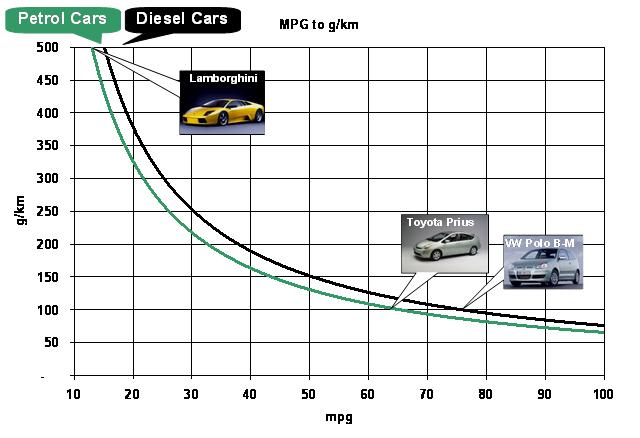Most manufacturersare now obliged to report figures now for CO2 as well as MPG. Its pretty obvious thatthe more fuel you burn for any given distance, the higher the CO2 and the lower the mpg. What most people don’t realise is that there is an exact formula exactly linking the two figures.
It’s far more accurate to measure how much CO2 your car produces using the MPG, because manufacturer figures are always very unreliable. For example a vicar who bought a car rated at 40mpg and does lots of long journeys at 50 mph is likely to get 50+ mpg, whereas a boy racer who spends most of his time with the front wheels spinning is closer to 30 mpg:
- 30mpg is equivalent to 218g/km (Petrol) & 252 g/km (Diesel)
- 40mpg is equivalent to 163g/km (Petrol) & 189 g/km (Diesel)
- 50mpg is equivalent to 130g/km (Petrol) & 151 g/km (Diesel)
But hang on – doesn’t this mean Diesel is less environmentally friendly than petrol? Surely that can’t be true?
Well it is and it isn’t. Every litre of Petrol you burn creates 2.31 kg of CO2, whereas every litre of Diesel produces 2.68kg. However diesel cars tend to be more efficient (because they can run a higher compression ratio mostly) and this offset’s the difference because less fuel is burnt in the first place.
So there you go. And to make it a little bit easier, below is a handy graph which allows you to translate easily between mpg and co2 for any vehicle.

As a final note, I should point out that for a car to be able to compete with the train as a clean form of transport, it would have to do about 109mpg (~60g/km). Now that is a challenge!
Source: VCA data / Clear analysis

